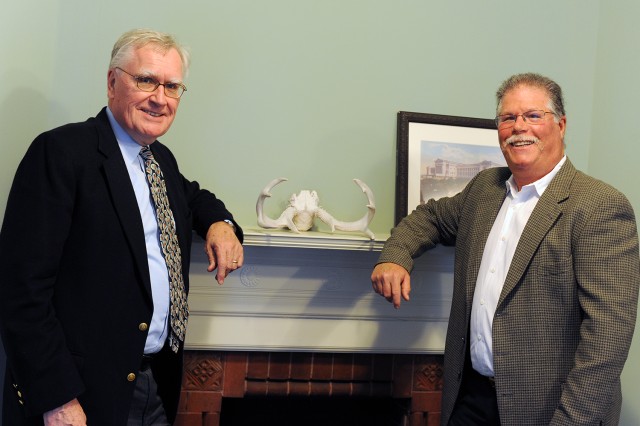Gift from Bailey ’66 Endows Visiting Faculty Position in COE

If anyone can appreciate humankind’s connection to the Earth, it’s a farmer. Essel Bailey ’66 grew up on farms in the South and Michigan, his early years shaped by the rhythms of planting and harvesting and his father’s careful stewardship of the land.
The lessons of his farming boyhood stay with Bailey, a lawyer and executive in Ann Arbor, Mich., in his work with the Nature Conservancy and other groups, and informed, in part, his gift to Wesleyan’s College of the Environment. The nearly $3 million commitment from Bailey and his wife, Menakka, will endow a visiting professorship and bring the COE close to full funding.
“What’s very appealing is the idea of knowledge-based policy on the environment,” Bailey said. “That’s what the COE can do, providing a scientific basis, academic basis to solutions on the environment. And (visiting faculty) are a valuable part of a Wesleyan education, bringing different ideas to campus.”
Their generous gift represents the Baileys’ strong commitment to Wesleyan and to the COE, which was founded in 2009 to “change the trajectory of humans on the planet for the better.”
“The most important challenge facing current and future generations of humans will be the quality of the environment and the allocation of dwindling natural resources among populations,” the COE says in its mission statement.
In addition to offering linked majors and certificates to students in all disciplines, the COE supports teaching and scholarship in a variety of environmental studies and a “think tank” that explores a different theme each year. The visiting professorship will be a critical part of that scholarly foundation.
Menakka Bailey, whom her husband credits with the initial idea of funding the COE (“he’s exaggerating,” she says graciously) said the gift was partly inspired by the need for global solutions on the environment.
“The problems are not limited to regions or countries; it’s all linked,” she said. “We have a grandchild who lives in Australia, who has asthma. He went to Malaysia for a week on holiday. (Forest fires in Indonesia) poured smoke into Malaysia, and he had to get oxygen and return to Australia… Policy needs to limit the number of repercussions of one event around the world. You can’t just work in one place, and the College of the Environment promotes thinking about that kind of solution.”
Menakka Bailey has been active in Planned Parenthood and other organizations that promote “human ecology,” but both Baileys have been deeply affected by travel around the world with the Nature Conservancy, they said. They both stress the need to study how humans can use the earth sustainably.
“The environment contains people as well as just flora and fauna,” Essel Bailey said.
COE Director Barry Chernoff, the Robert Schumann Professor of Environmental Studies, professor of biology and chair of the Environmental Studies Program, said Bailey’s gift will ensure a continuing robust visiting scholar program, which “makes a ton of difference, really brings new perspectives and new scholarship and allows us to focus on a different area each year.”
In a beautifully synergistic way, one of the visiting scholars for 2013-2014 will be Frederique Apfel-Marglin, whose recent work has been on farmers – ancient farmers, in fact, who may have found a way to improve their Andean soil thousands of years ago through a technique not unlike the modern manufacture of charcoal. The black substance long known in South America as “Indian earth” was created by burning substances (wood and possibly refuse) underground. When mixed with clay, it is remarkably fertile. Apfel-Marglin and her partner, Pramod Paraguli, will spend the academic year as COE Visiting Fellows.

